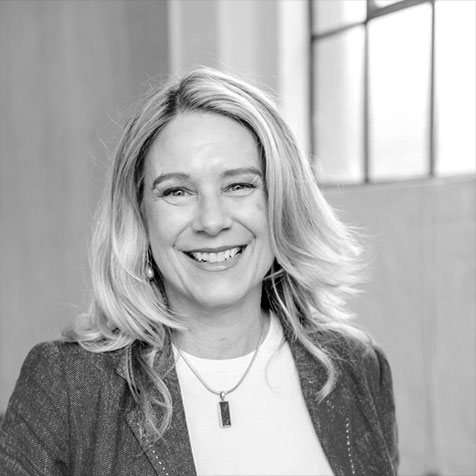Loading component...
At a glance
Before becoming an executive coach, Sue Rosen worked for more than 25 years in the finance world, including several years as a CFO.

“The CFO role can be a particularly lonely one,” Rosen says. “You can feel quite isolated – that was my experience.”
Many people find their support networks narrow as they ascend the corporate ladder.
“You are in a senior leadership position, so you inevitably have a smaller peer group,” she explains.
“CFOs have a particular range of challenges that they find hard to share with somebody else. There is a lot of work that finance people do that is highly confidential and very sensitive that cannot be shared widely.”
The sense of isolation Rosen felt in senior leadership roles – a feeling “exacerbated when you are one of a very small number of women around the leadership table” – prompted her to establish the CFO Women’s Circle in 2020.
The circle features peer advisory groups of four to six female senior leaders who meet every month to discuss issues such as purpose, imposter syndrome, gaslighting and wellbeing.
The goal is to foster personal and professional growth through the construction of a robust professional network.
This type of peer mentorship can deliver a raft of benefits. Writing in the Harvard Business Review, Brenda Steinberg and Michael D. Watkins argue that peer coaching offers insight to leaders on different perspectives, the chance to perfect new skills, a greater capacity for collaboration and the confidence to take risks.
My Firm. My Future. Mentoring Staff.
Trust and diversity
Traditional mentorship pairs an individual in a junior position with a more experienced counterpart, such as an aspiring CFO with a veteran of the role.
“A mentor is somebody who has been through a similar career journey and can help you by sharing their experiences with you,” Rosen says.
Peer mentorship – which can take the form of groups or one-on-one relationships – allows leaders to call on lateral sources of support.
Lyn Harding FCPA is based in Western Australia and is the chair of The Executive Connection. This international membership organisation offers coaching and mentoring for CEOs and has recently been acquired by Vistage, a global CEO coaching and peer advisory firm.
For the last 10 years, Harding has led peer advisory groups of CEOs and owners of small-to-medium businesses, ASX-listed companies and not-for-profit organisations.
"CFOs have a particular range of challenges that they find hard to share with somebody else. There is a lot of work that finance people do that is highly confidential and very sensitive that cannot be shared widely."
These business leaders have diverse backgrounds and experiences.
“Some CEOs are fairly new in their career, others are very well established and gaining momentum, and others are looking towards their twilight years of succession or sale,” Harding says. “It is a very eclectic group.”
She believes the diversity is fundamental to the group’s success.
“That is the magic of how it works – there is no competitive conflict of interest. They can bring their whole selves to the table for discussion,” Harding says.
Each member is “one among equals – that by its very definition is what a peer means”.
As chair, Harding vets each new member to ensure they share the group’s values. “You cannot bring someone to the table who does not contribute,” she says.
“The only way this group really works – and any mentoring relationship can work – is with a very sound foundation of trust.”
A Practical Guide to Succeeding as a Mentor
Brave space
Peer mentorship has boundaries. A peer mentor draws on their own experience but is not there to be a consultant or give advice, Harding says. “They are there to show genuine curiosity and ask questions.”
The most successful peer mentors ask insightful questions, offer observations and give feedback. “They hold up a mirror,” she says.
A peer is more likely to be impartial than a colleague or a work associate. “There is no unconscious bias,” Harding says. “There is no skin in the game for them.”
The leaders in the CFO Women’s Circles she facilitates offer each other support in two broad areas, Rosen adds.
One is technical. “A member might come to the group with questions such as ‘Who else has been through running an IPO for the first time?’ Or ‘Who else has implemented this particular ERP?’” Rosen says.
The other is around leadership skills and challenges such as “workshopping ways to get a message heard and understood in the executive team”.
Confidentiality is key. A shared understanding that what participants discuss will remain private allows each member to reveal their vulnerability.
“We call it a brave space, not a safe space,” Harding says. “‘Safe space’ suggests that you do not get out of your comfort zone. We talk courageously and honestly in our brave space.”
In this trusting setting, a peer mentor can help another leader identify their blind spots, Harding says.
Sounding out an independent mentor – or a group of them – with a new idea can foreshadow the reactions in a real-life setting.
“You will have a fairly good idea of what your board or other stakeholders in the business might say to your ideas or your observations or your requests for change,” Harding says. “You will be a lot better equipped – and that brings success.”

